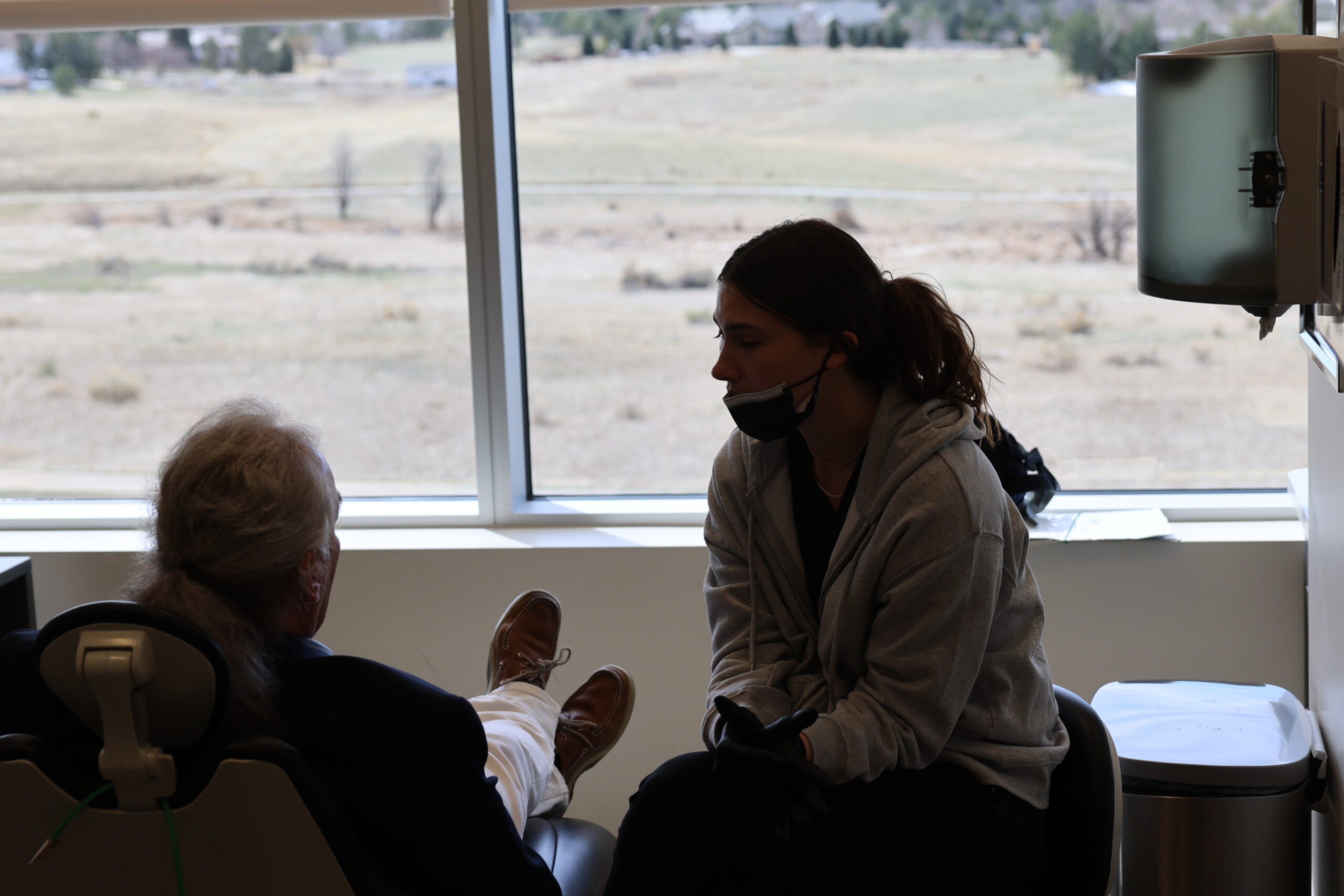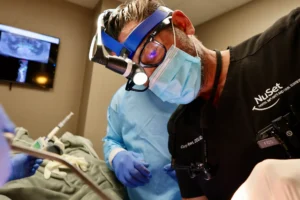One of the first questions many people have when considering dental implants is, “How long does a dental implant take to heal?”
Understanding the healing timeline is vital, as it plays a significant role in the success of this dental procedure. It helps individuals set realistic expectations and prepare adequately for what lies ahead.
Let’s explore the various stages of healing following a dental implant, discuss factors that influence the healing duration, and offer practical advice to ensure the best possible outcomes.
How Long Does It Take to Heal After Dental Implants?
Healing after dental implant surgery involves several key stages. It starts with the immediate post-operative period and extends into the long-term healing phases. Initially, after the surgery, you may experience mild swelling and discomfort, which typically subsides within the first few days.
The next phase is osseointegration, where the implant integrates with the jawbone. This process is vital as it provides a stable base for the new tooth. Osseointegration takes three to six months, depending on individual health factors and the specific implant used.
Several factors can affect how long it takes for your implant to heal fully. Your overall health plays a significant role; individuals with good bone density and general health usually heal faster. The complexity of the implant procedure, such as whether bone grafting was necessary, also impacts the healing duration. Also, lifestyle choices such as smoking can significantly slow down the healing process.
Understanding these phases and factors can help you set realistic expectations for your recovery and ensure you are prepared for the time investment required for a successful dental implant.
Managing Expectations
It’s important to address some common misconceptions about the healing process of dental implants to help manage expectations properly. Many patients wonder why the healing takes several months and what they should anticipate during this period.
First, each person’s healing process is unique. While some might recover quickly, others may take longer due to factors like age, general health, and specific conditions such as diabetes, which can slow down healing. The complexity of the dental implant procedure itself also influences recovery time. For instance, procedures that require bone grafting or involve multiple implants might extend the healing period.
Another common concern is identifying normal healing signs versus symptoms that may require a dentist’s attention. Normal signs of healing include swelling, bruising, and mild discomfort, which gradually decrease over time. However, you should contact your dentist immediately if you experience severe pain, prolonged swelling, or signs of infection, such as excessive redness and discharge.
Recovery Tips and Recommendations
To promote optimal healing after a dental implant procedure, following a few practical tips and recommendations is essential. These guidelines not only help in speeding up the recovery process but also ensure the long-term success of the implant.
Follow post-operative care instructions
Adhere strictly to the care instructions provided by your dentist. This includes taking prescribed medications to manage pain and prevent infection and following specific guidelines on oral hygiene practices to keep the implant site clean.
Stick to the recommended diet
During the first few days after your surgery, stick to soft foods and liquids to avoid putting pressure on the implant site. Foods like yogurt, soup, and applesauce are good choices. Based on your dentist’s advice, gradually reintroduce harder foods as healing progresses.
Lifestyle adjustments
Avoid smoking and drinking alcohol, as these can hinder the healing process. Also, refrain from strenuous activities and exercises that might impact your recovery during the initial healing phase.
Maintain good oral hygiene
Maintain good oral hygiene by gently brushing your teeth around the implant site and using an antibacterial mouthwash if your dentist recommends it. This helps prevent infection and promote healing.
Do not miss your follow-up appointments
Keep all follow-up appointments with your dentist. These visits are crucial for monitoring the healing process and ensuring the implant integrates properly with your jawbone.
By following these tips, you can help ensure a smoother and quicker healing process, which is crucial for the success of your dental implant.

Are You Ready to Embrace Your New Smile?
As we’ve discussed, understanding the healing timeline for dental implants is crucial for anyone considering this life-changing procedure. From the initial surgery to the final stages of osseointegration, knowing what to expect at each phase helps manage expectations and contributes to a successful outcome.
At NuSet Dental Implants and Oral Surgery, we are committed to providing our patients with comprehensive care and detailed information throughout their implant journey. A well-informed patient is likelier to have a positive experience and satisfactory results.
If you have any specific concerns about the healing process or wish to know more about how dental implants can transform your smile, please contact us to schedule a consultation. Our team is ready to support you every step towards achieving a healthy, beautiful smile that lasts.
Frequently Asked Questions
How long does it take for the bone to heal around a dental implant?
Bone healing around a dental implant, known as osseointegration, is a critical step in the success of the implant procedure. This process typically takes 3 to 6 months, but it can vary depending on factors like bone density, overall health, and whether bone grafting is needed.
How long does it take for your gum to heal after a dental implant?
Gum healing is usually quicker than bone healing. Most patients notice their gums feeling better within a few weeks after surgery. However, complete healing of the gum tissue around the implant can take several weeks.
How long after dental implants can I eat normally?
Generally, we advise our patients to stick to soft foods for the first few days to a week after the implant surgery to avoid disturbing the implant site. Normal eating habits can typically be resumed as soon as it is comfortable to do so, but this can vary. It’s important to follow specific dietary recommendations from your dental surgeon during the healing process.
How long does it take for a dental implant to feel normal?
A dental implant may take a few weeks to several months to feel completely normal as the mouth adjusts and the implant integrates with the jawbone. This period allows the implant to become securely anchored, and any initial discomfort or awareness of the implant typically diminishes during this time.





